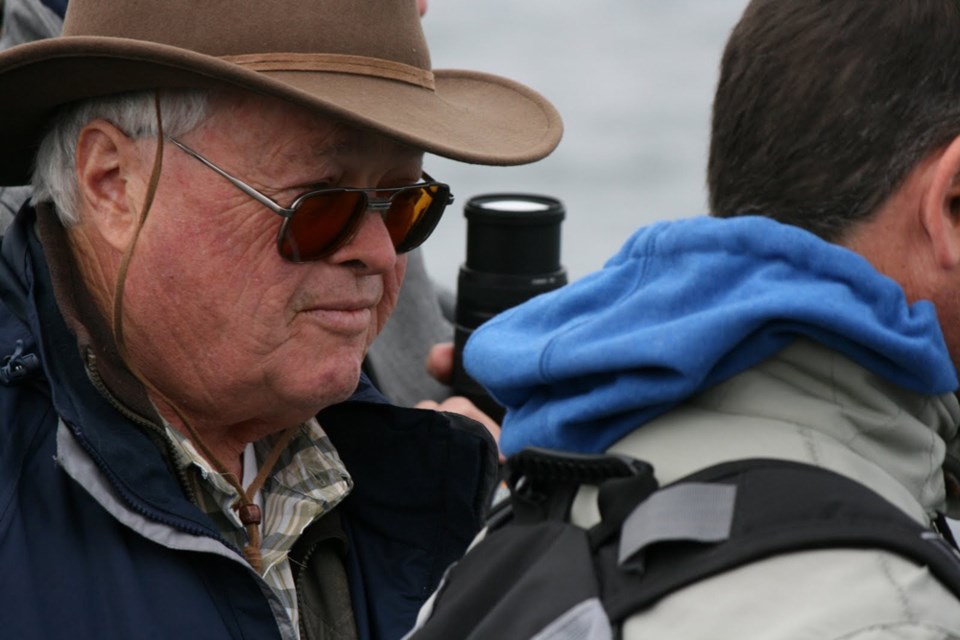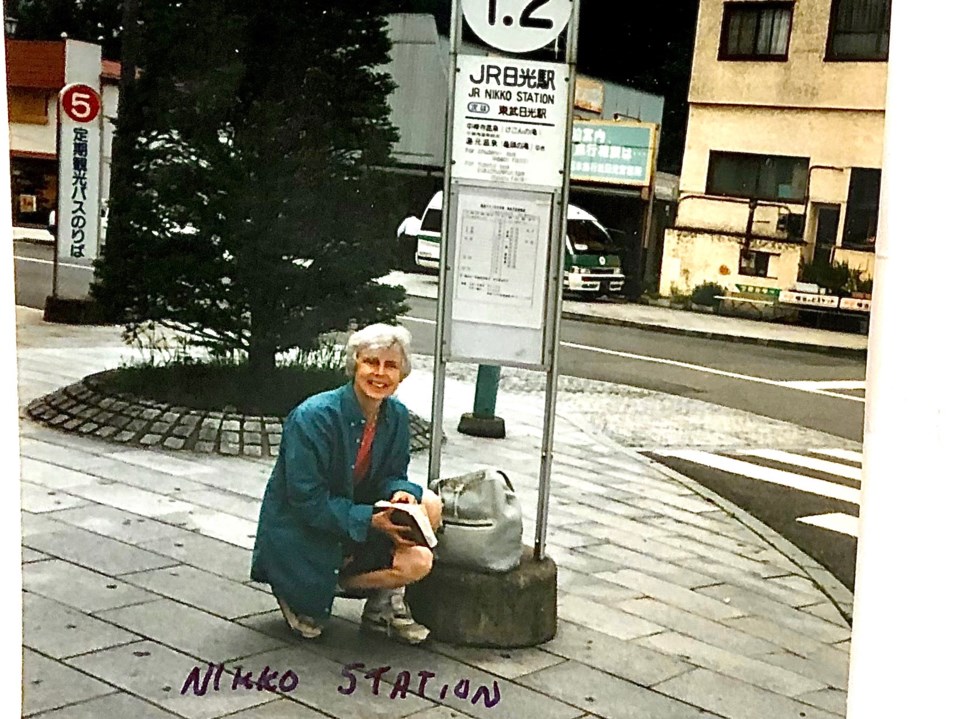When Mike McLellan's mother Maureen Elizabeth died on Sept. 26, he was lying beside her. Her other son was on FaceTime with them from California.
McLellan describes her death as "a beautiful journey," because, unlike many deaths, this one was planned to be peaceful.
Maureen, 79, chose Medical Assistance in Dying (MAID).
"It was incredible. It was absolutely incredible," McLellan told The Chief.
"My brother and I said that we loved her and kissed her and hugged her, and I was lying in bed with her. It was really, really special," McLellan added.
"She was totally at peace. You could see her body wasn't shaking anymore. She just seemed very, very calm and peaceful."
The experience was sort of like a funeral, in reverse.
People she knew at Shannon Falls Retirement Residence came by to hug her and say good-bye, he said.
His mom made some phone calls to people she cared about, as well, saying she was "Leaving at 7 p.m."
The day of her death was "very relaxing," he said.
McLellan said his mom was a very active and involved mom and in her later years, before her diagnosis of Lewy Body Dementia, she continued to be active.
"She was an awesome, amazing mom," he recalled.
In the last two years of her life, the tremors that accompanied her illness got really bad.
She also began to have trouble swallowing, which impacted her ability to eat, making her thin and weakened.
"Knowing her condition, she knew that there was no probable improvement or anything she looked forward to as, 'I am going to get better,'" McLellan said. "That is what led to her research and looking into MAID."
In June of 2016, the federal government passed legislation that allows eligible Canadian adults to request medical assistance in dying.
MAID is an option available to most patients who are facing the end of life or who have a life-limiting illness and are dealing with suffering that is not resolved using conventional palliative care measures, according to Dr. Brenda Millar, the medical lead for the Sea to Sky Corridor's palliative care service.
"In our program, when a patient is referred to us, we invite a discussion about MAID if the patient has asked us to go over their end-of-life options," Millar said.
For more on this option, people can also talk to their family doctor who can make a referral to the program.
Patients can also discuss this option with their home care nursing team.
More information is also available on the BC MAID website.
"Any one of these entry points will get you in contact with our team to help you navigate the enrollment process," Millar said.
There are three parts to the MAID application process.
First, the patient must fill out a request form.
Once this form has been submitted a medical doctor or nurse practitioner will need to do an assessment to verify that the situation meets the requirements of the program and to go over other palliative options that may be available that the patient may not have considered or been offered. This can be done in person or via video link in keeping with COVID-19 precaution, Millar said.
A second assessment is then organized by the program to connect the patient with the person who will be the provider for this service. This person is either a medical doctor or a nurse practitioner who has received specialized training in how to deliver this service.
"They will spend time with you to assure that you fully understand the whole process and that this is truly what fits your needs," Millar said.
"The important thing for patients to understand is that filling out their request and even finishing the whole application process does not oblige them to carry through with MAID. And that they are the sole person who dictates where and when this process might take place."
The patient can have a doctor or nurse practitioner give the life-ending medicine by intravenous injection, or the medical professional can prescribe a medicine for the person to ingest without help. Either way, a doctor or nurse practitioner is present for the death, according to Vancouver Coastal Health.
In the Sea to Sky Corridor, the MAID provision can be offered in the patient's home but some people prefer a different location.
"We have done provisions in our acute care hospital if that is where the patient is situated but our preference is to offer patients to move to the WBF Sea to Sky Hospice where we can provide a more peaceful home-like atmosphere."
For Maureen, McLellan said she was in hospice for a bit, but wanted to die at home at Shannon Falls, which was her home for many years.
McLellan said he feels more people need to know this is an option for them.

Tim Regan's story
Whistlerite Tim Regan's father, of the same name, accessed MIAD back in the first year it was legal.
He chose Dec. 12, 2017 as his last day.
He died at home in Toronto, surrounded by his family.
The younger Regan told The Chief his dad had known from the time he was 15 years old, delivering groceries in the 1950s that he didn't want to die suffering.
One of his deliveries was to a house where First World War veterans went to die.
"Seeing men suffer had a profound impact on him," Regan said. "From that moment forward, he never wanted to be that guy. It was very important for him that he had a say in how he died."
The elder Regan was a very practical guy, his son recalled, who understood well the cycle of life and was at peace with it.
He also had a condition called hemochromatosis, which is when the body absorbs too much iron.
"So he had known for much of his life... that he had done organ damage and it was just a matter of time before something was going to come from having toxic blood."
What came was liver cancer. "There was nothing they could for him," his son recalled.
Regan senior was thrilled that the laws allowed him to choose his own death.
Like McLellan, he had a living wake of sorts, even singing goodbye to his grandchildren.
Under the current law, and for Regan's dad, a patient must be able to pass a test on the day of the procedure that shows he is of sound mind to move forward.
Currently, there are proposed amendments to the Criminal Code — Bill C-7 — that would, among other things, remove that provision for those who had given prior consent.
"Which makes a lot of sense," Regan said, noting that when people have to be able to pass the test, they may actually have to choose to die sooner in order to pass it.
Having experienced his father's death through MAID, Regan said he would wish it for himself.
"I would wish it for anybody who had a belief system that allowed him to do this. I think it is very natural and peaceful."
More end of life care options and information can be found through the Sea to Sky Hospice Society.



